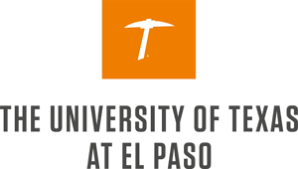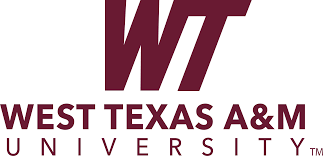Introduction
Master’s in engineering programs in Texas have grown significantly, reflecting the state’s booming economy and the increasing demand for skilled engineers across various industries. Texas is home to a diverse range of universities offering high-quality engineering programs, making it an attractive destination for students seeking advanced degrees.
The lifestyle in Texas is varied and dynamic, with bustling cities like Houston, Austin, and Dallas offering a mix of professional opportunities, cultural experiences, and recreational activities. Texas’s relatively low cost of living compared to other states with similar job opportunities adds to the appeal for students and professionals alike.
The benefits of pursuing a master’s in engineering at a Texas university are manifold. Schools such as the University of Texas at Austin, Texas A&M University, and Rice University are consistently ranked among the top engineering schools in the nation, offering cutting-edge research facilities, experienced faculty, and strong industry connections. These institutions provide specialized programs in fields such as mechanical engineering, civil engineering, and aerospace engineering, catering to the evolving needs of the job market.
Additionally, Texas’s strong economy, driven by industries such as oil and gas, technology, and manufacturing, offers a robust job outlook for engineering graduates. Graduates of Texas engineering programs often find employment in leading companies like ExxonMobil, Lockheed Martin, and Texas Instruments, with competitive salaries and career advancement opportunities.
A master’s degree in engineering is ideal for individuals looking to deepen their technical expertise, pursue leadership roles, or transition into specialized areas of engineering. It is particularly beneficial for those already working in the field who wish to enhance their qualifications and increase their earning potential. Whether you are a recent graduate or a mid-career professional, a master’s degree can open doors to advanced positions that require a higher level of knowledge and experience.
MENG Programs in Texas
Texas offers a wealth of opportunities for students pursuing a master’s degree in engineering. With its strong educational institutions, vibrant job market, and diverse lifestyle options, Texas is an excellent choice for those looking to advance their careers in engineering. Here is a summary of all institutions in the State of Texas offering a Master’s Degree in Engineering:
ABET-accredited Engineering Programs
Evaluating a good program involves looking at factors such as the school’s accreditation (preferably ABET accreditation), the program’s curriculum and faculty expertise, available specializations, research opportunities, and the success of its graduates.
ABET accreditation is a significant marker of quality and standards in engineering and technology education. ABET, which stands for the Accreditation Board for Engineering and Technology, is a non-profit organization that accredits college and university programs in applied and natural science, computing, engineering, and engineering technology.
ABET accreditation ensures that a program meets the rigorous quality standards necessary to prepare graduates for entry into the global workforce. Since ABET accreditations are generally focused on institutions offering undergraduate degrees, there is one ABET-accredited institution in Texas, shown here:
| Institution | Location | Accreditation | Credit Hours | Modality |
|---|---|---|---|---|
| Texas Tech University | Lubbock, TX | ABET,SACSCOC | 36 | Online/On- Campus |
| Baylor University | Waco, TX | SACSCOC | 37 | On-Campus |
| Texas State University | San Marcos, TX | SACSCOC | 31 | On-Campus |
| Texas A&M University | College Station, TX | SACSCOC | 30 | Online/On- Campus |
| Tarleton State University | Stephenville, TX | SACSCOC | 33 | Online/On- Campus |
| University of North Texas | Denton, TX | SACSCOC | 33 | On-Campus |
| University of Texas at Austin | Austin, TX | SACSCOC | 45 | On-Campus |
| University of Texas at Arlington | Arlington, TX | SACSCOC | 30 | On-Campus |
| University of Texas at Dallas | Dallas, TX | SACSCOC | 33 | On-Campus |
| University of Texas at El Paso | El Paso, TX | SACSCOC | 33 | Online/On- Campus |
| University of Texas – San Antonio | San Antonio, TX | SACSCOC | 30 | On-Campus |
| Rice University | Houston, TX | SACSCOC | 30 | Online/On- Campus |
| University of Houston | Houston, TX | SACSCOC | 30 | Online/On- Campus |
| West Texas A&M University | Canyon, TX | SACSCOC | 36 | Online/On- Campus |
Texas Tech University
- Location
- Online + Campus
Credit Hours: 36
Modality: Online/On-Campus
GRE: Required
Resident Tuition: $348 (PCH)
Non-Resident Tuition: $756 (PCH)
Program Overview:
The Master of Engineering degree at Texas Tech University is an interdisciplinary, non-thesis program tailored for practicing engineers. It is available both on-campus and through distance learning. The program requires 36 semester hours, with up to 9 hours transferable from other accredited graduate schools. All coursework must be completed within nine years. Admission requires a baccalaureate degree in engineering or an equivalent qualification.
Online Engineering Programs
When considering a master’s in engineering, one of the first decisions to make is whether to pursue the degree online or on-campus. Online programs, such as those offered by Texas Tech University or the University of Houston, provide flexibility for working professionals who need to balance their studies with job responsibilities.
These programs typically offer the same curriculum and instruction quality as their on-campus counterparts but allow students to study from anywhere, making them ideal for those who cannot relocate or prefer a more flexible learning schedule. Here are the programs in Texas that offer online degree options for engineering:
Rice University
- Houston, TX
- Online + Campus
Credit Hours: 30
Modality: Online/On-Campus
GRE: Not required
Tuition: $1,667 (PCH)
Program Overview:
Advance your career with Rice University’s top-30-ranked engineering school, offering 13 professional non-thesis master’s programs across 9 departments. These programs, which can be completed in three semesters or through a 5th-year option for Rice undergraduates, combine engineering with business, management, leadership, and entrepreneurship training. Students gain hands-on experience and access to industry-focused networking opportunities. Alumni work at prestigious organizations like NASA, Google, Apple, and Amazon, making the EPMP alumni network a valuable asset for professional growth.
Texas A&M University
- College Station, TX
- Online + Campus
Credit Hours: 30
Modality: Online/On-Campus
GRE: Not required
Tuition: $54,000 (TTL)
Program Overview:
Engineering management prepares engineers for careers in the management of engineering and technical organizations and systems. The program consists of a set of four foundational courses in the analysis of data-driven economic decision making, as well as a set of four specialization courses. These specialization courses emphasize preparing students to gain expertise in a particular industrial context or in addressing a particular class of complex problems.
Tarleton State University
- Stephenville, TX
- Online + Campus
Credit Hours: 31
Modality: Online/On-Campus
GRE: Required
Resident Tuition: $509 (PCH)
Non-Resident Tuition: $775 (PCH)
Program Overview:
Tarleton State’s Master of Science in Mechanical Engineering (M.S.) is an advanced graduate program aimed at career advancement and preparation for doctoral studies. Offered both in-person and online, the program allows engineers to specialize further in areas like robotics, renewable energy, biomedical engineering, aerospace, and automobiles. The degree is designed to be completed in two years, with coursework available in both synchronous and asynchronous formats, providing flexibility for students.
University of Texas at El Paso
- El Paso, TX
- Online + Campus
Credit Hours: 33
Modality: Online/On-Campus
GRE: Not required
Tuition: $782 (PCH)
Program Overview:
The Master of Science in Engineering (MS-E) is a 33-hour, non-thesis program that allows students to customize their engineering education by combining a primary concentration in engineering with a secondary concentration in another field, such as business administration, computer science, or health sciences. The program offers various interdisciplinary tracks, including engineering education and smart cities, the latter available as a dual Master’s program with the Czech Technical University. Applicants typically need a Bachelor of Science in Engineering or a related field and may need to complete additional coursework depending on their chosen concentration.
University of Houston
- Houston, TX
- Online + Campus
Credit Hours: 30
Modality: Online/On-Campus
GRE: Not required
Tuition: $745 (PCH)
Program Overview:
The University of Houston’s Cullen College of Engineering offers fully online graduate and certificate programs designed for working engineers, developed by the same award-winning faculty as their on-campus programs. These innovative programs, covering areas like data science and subsea engineering, are crafted to address global challenges and enhance career competitiveness. The college’s mission is to provide impactful learning experiences, advance knowledge through pioneering research, and equip students with the skills needed for leadership roles.
West Texas A&M University
- Canyon, TX
- Online + Campus
Credit Hours: 36
Modality: Online/On-Campus
GRE: Not required
Tuition: $790 (PCH)
Program Overview:
The Master of Science in Engineering program equips engineers with interdisciplinary knowledge across various engineering disciplines, such as mechanical, civil, environmental, and electrical engineering. This program prepares engineers for diverse career challenges, even beyond their undergraduate specialization. Students gain broad engineering expertise while also having the flexibility to focus on a specific area, allowing them to expand their skills across multiple facets of engineering and deepen their knowledge in a chosen specialization.
Accelerated Engineering Programs in Texas
Accelerated engineering master’s programs offer significant advantages for students looking to fast-track their careers while gaining advanced knowledge and skills. For instance, the University of Texas at Arlington’s Fast Track Program allows Civil Engineering undergraduates to earn both undergraduate and graduate credits simultaneously, reducing the overall time and cost to complete a master’s degree.
Similarly, Baylor University’s joint Master of Engineering/MBA program allows students to strategically select electives to reduce the total credit hours needed by up to 21 hours, efficiently combining two valuable degrees. At Tarleton State University, qualified students can start their master’s coursework during their senior year of their undergraduate program, enabling them to earn both bachelor’s and master’s degrees in Mechanical Engineering within five years.
These programs are particularly beneficial for students who are eager to enter the workforce with advanced qualifications, offering a streamlined and cost-effective pathway to achieve their academic and professional goals.
Affordable Engineering Programs in Texas
Affordability is a critical factor when considering a master’s degree in engineering, as it can significantly impact the return on investment (ROI) and overall financial burden of the program. In Texas, several institutions offer competitive tuition rates, which can make advanced education more accessible and financially manageable for students.
Lower tuition rates reduce the amount of debt students need to incur. At Texas Tech University, for instance, the substantial difference between resident and non-resident tuition can significantly affect a student’s financial planning. Texas Tech University offers resident tuition at $348 per credit hour and non-resident tuition at $756 per credit hour.
When tuition is lower, the return on investment improves as the cost of the degree is offset more quickly by higher earning potential. For example, the University of Houston charges $745 per credit hour for all students who participate in their online program.
What Types of Careers Can I Pursue With a Master’s Degree in Engineering in Texas?
In Texas, the salary increase for engineers holding a master’s degree compared to those with just a bachelor’s can be substantial. On average, engineers with a master’s degree earn approximately 15-25% more than their bachelor’s degree counterparts.
For instance, while an engineer with a bachelor’s degree might earn around $80,000 annually, those with a master’s degree often see salaries in the range of $95,000 to $110,000, depending on the industry and specific role. This higher earning potential reflects the advanced skills, expertise, and leadership capabilities that a master’s degree provides.
- Engineering Manager: Engineering managers oversee teams of engineers working on projects across various sectors, including construction, manufacturing, and technology. They are responsible for planning, directing, and coordinating activities, ensuring that projects are completed on time and within budget.
Average Salary: $145,000 per year - Aerospace Engineer: Aerospace engineers design, develop, and test aircraft, spacecraft, and missiles. With a master’s degree, aerospace engineers can take on more complex projects, engage in research and development, and lead teams in creating advanced aerospace technologies.
Average Salary: $115,000 per year - Civil Engineer (Senior/Project Lead): Civil engineers design and supervise large construction projects, including roads, buildings, airports, and bridges. With a master’s degree, they can move into senior positions where they manage projects, conduct advanced research, and contribute to public infrastructure development.
Average Salary: $100,000 per year - Petroleum Engineer: Petroleum engineers focus on extracting oil and gas from beneath the earth’s surface. A master’s degree enables them to develop new drilling and extraction techniques, optimize production processes, and lead research into sustainable energy practices.
Average Salary: $140,000 per year - Electrical Engineer (Advanced/Lead): Electrical engineers design, develop, and test electrical equipment and systems. With a master’s degree, they can lead teams working on complex electrical systems, engage in cutting-edge research, and contribute to the development of new technologies in sectors such as renewable energy, telecommunications, and robotics.
Average Salary: $110,000 per year - Environmental Engineer: Environmental engineers work on projects that improve public health, reduce pollution, and manage waste. A master’s degree allows them to take on more specialized roles, lead environmental impact assessments, and design sustainable solutions for industrial processes.
Average Salary: $95,000 per year - Software Engineer (Senior/Project Lead): Software engineers develop and maintain software systems. With a master’s degree, they can move into senior or project lead roles, overseeing the design and implementation of complex software solutions, managing development teams, and integrating new technologies.
Average Salary: $120,000 per year







